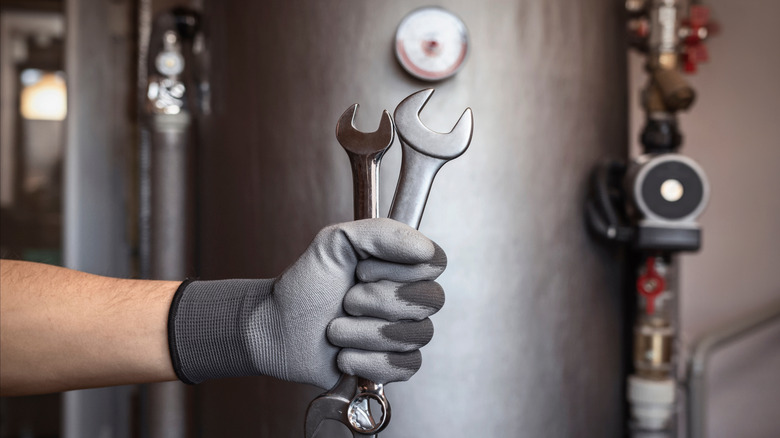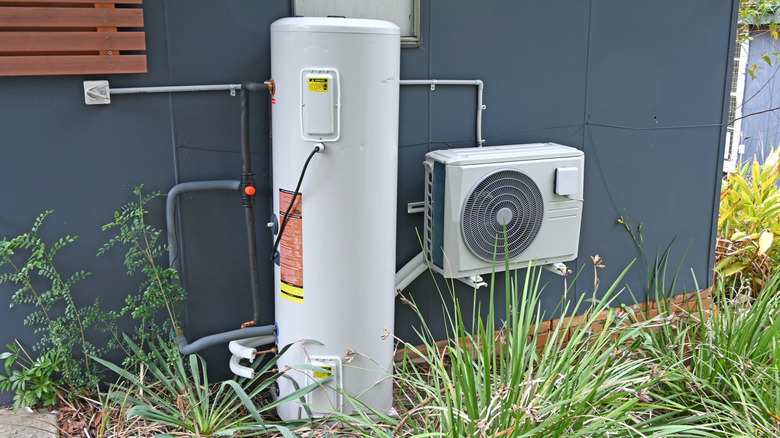The Location Of Your Water Heater Could Be Seriously Affecting Your Utility Bill
If you need to replace a hot water heater, one with a heat pump can save you lots of money, but only if it's installed in the proper location. Heat pump water heaters are more efficient than gas or electric models, which the federal Energy Star program estimates can save you $550 a year. Federal government incentives that expire at the end of 2025 can cut the cost of installing one by 30%, while states in every region of the country offer rebates and tax credits as well. But if you install your heat pump water heater in the wrong location, you could watch your utility bills skyrocket. The key is air circulation.
Rather than burning natural gas or using electricity to generate warmth, a heat pump water heater uses the surrounding air. Think of it as a reverse refrigerator. A refrigerator keeps your food cool by moving warm air from inside the unit and sending it outside the box. A heat pump water heater does the opposite: it draws heat from the surrounding air and uses it to warm the water inside its tank. It then vents cool air in the process of heating your water. Installing a heat pump water heater in a too-small space with poor air circulation means the water heater will have to work harder to draw warmth from the ambient air. The harder it works, the more it costs to run. This also affects its longevity, something people fail to consider when buying a water heater. Increased production can also shorten its lifespan, which could increase your costs.
Where to install a heat pump water heater
If you live in a region where temperatures don't drop below 40 degrees Fahrenheit, the great outdoors is the best spot to install a heat pump water heater. For everyone else, a basement or garage that doesn't freeze is ideal. A standard unit will require at least 700 cubic feet of air space to function efficiently, though compact models can require less. That's a room 10-feet long, 10-feet wide, and 7-feet high. (If you're in a tight space, consider a tankless water heater.) The area should not drop below 38 degrees Fahrenheit. It might be hard to imagine heating water when the air temperature is close to freezing, but the refrigerant in the unit is even cooler, allowing it to absorb warm energy from the air.
Since heat pump water heaters only vent cool air, you might think that they don't need much ventilation. But size matters here as well. A large enough space reduces the impact of the unit venting cool air into the surrounding environment, meaning the cool air will not significantly impact the ambient air temperature. But if you barely have a large enough space, duct kits similar to dryer ducts are available to send that cool air directly outside, reducing the strain on your water heater. Also be sure to direct the vented cool air away from thermostats, which could inadvertently increase your space heating bills.

